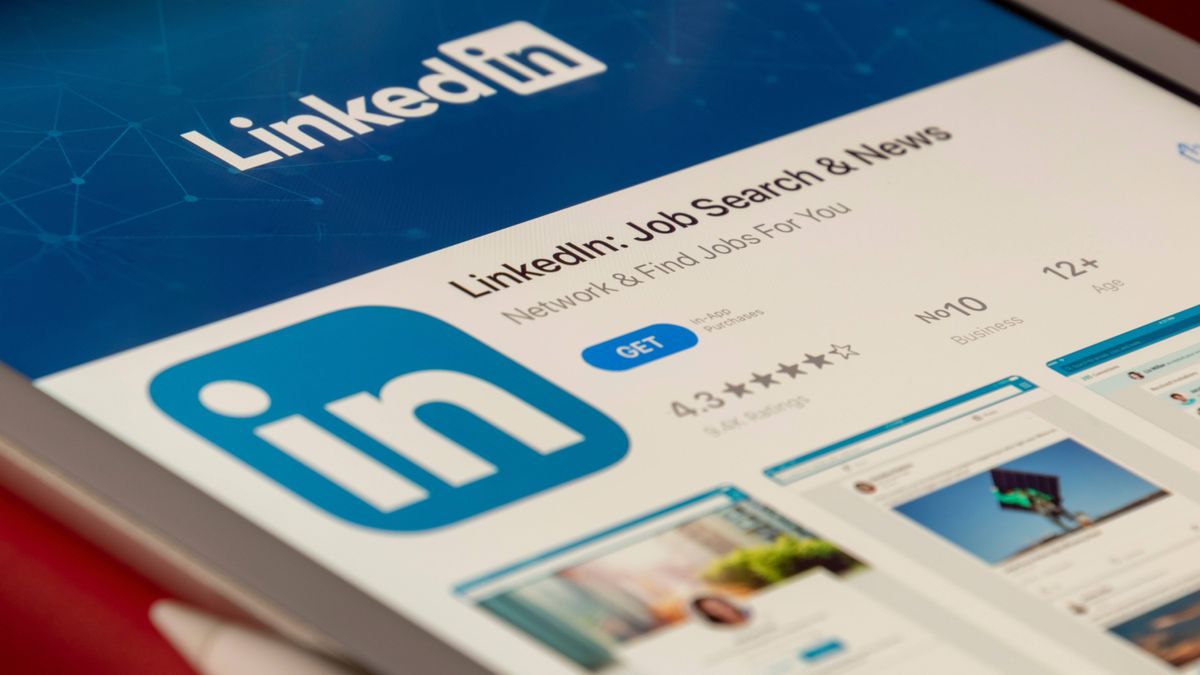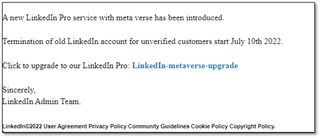LinkedIn is the most faked brand for phishing attacks — beware of malware-infested emails
Scams continue to run rampant on trusted social media platforms

Cybersecurity researchers list the most frequently faked brands cybercriminals imitate in phishing attacks to steal users' private information and payment information — and LinkedIn is leading the pack.
In Check Point Research's brand phishing report, the professional networking and social media platform continues to be the biggest target for threat actors to trick unsuspecting victims into sharing confidential credentials. In the second quarter of 2022, 45% of all phishing attempts come from faked LinkedIn phishing attempts.
While this is a slight decrease compared to its 52% share in the first quarter of this year, the trusted platform still takes up a significant amount of brand phishing attempts, as Microsoft-related scams take second place with a 13% share. While Adidas, Adobe, and HSBC are seeing a slight rise in being imitated by cybercriminals at 1% each, the report points out that social networks are still the most susceptible.
Microsoft saw the biggest spike in phishing attacks, with scammers using the technology brand's name more than twice as much compared to the previous quarter. Delivery company DHL is also frequently faked, taking up 12% of malicious phishing attempts.
Here are the top brands being imitated for phishing attacks in the second quarter of 2022:
- LinkedIn - 45%
- Microsoft - 13%
- DHL - 12%
- Amazon - 9%
- Apple - 3%
- Adidas - 2%
- Google - 1%
- Netflix - 1%
- Adobe - 1%
- HSBC - 1%
Look out for malicious emails
The report showcases the methods cybercriminals use to trick social media users of each platform, which are generally through emails. One phishing attempt uses a fraudulent Microsoft Outlook web page with the subject line: “[Action Required] Final Reminder – Verify your OWA Account now”, asking the victim to enter their login credentials.
"The increase in the use of Microsoft-related scams is a danger to both individuals and organizations," the report states. "Once someone has hold of your account login details, they have access to all the applications behind it, such as Teams and SharePoint, as well as the obvious risk of compromise to your Outlook email account."

LinkedIn's branding is often used in sneaky phishing emails, too. Check Point Research spotted one email that was sent from a webmail address and spoofed to appear as if it was sent from “LinkedIn Security (mlayanac@armada.mil[.]ec)”. With the subject line “LinkedIn Notice!!!,” the sender tried to lure users to click on a suspicious link in order to update their LinkedIn account version. However, it instead leads to a dodgy site that asks the victim to enter their LinkedIn account information.
This would lead to cybercriminals learning a user's private credentials, giving them access to their account and anything linked with it, including personal information or banking credentials. These links can also be a way for threat actors to dupe users into downloading malware, to damage or gain unauthorized access to a system.
There are a number of different phishing emails using the usual LinkedIn communication style users commonly see, including subject lines like “You appeared in 8 searches this week,” “You have one new message,” or “I’d like to do business with you via LinkedIn.”
It's a good idea to always check the email address of any email from a social media platform, especially if they require you to click on a link. To stay safe online, be sure to check out the best antivirus apps and best password managers around.
Stay in the know with Laptop Mag
Get our in-depth reviews, helpful tips, great deals, and the biggest news stories delivered to your inbox.

Darragh Murphy is fascinated by all things bizarre, which usually leads to assorted coverage varying from washing machines designed for AirPods to the mischievous world of cyberattacks. Whether it's connecting Scar from The Lion King to two-factor authentication or turning his love for gadgets into a fabricated rap battle from 8 Mile, he believes there’s always a quirky spin to be made. With a Master’s degree in Magazine Journalism from The University of Sheffield, along with short stints at Kerrang! and Exposed Magazine, Darragh started his career writing about the tech industry at Time Out Dubai and ShortList Dubai, covering everything from the latest iPhone models and Huawei laptops to massive Esports events in the Middle East. Now, he can be found proudly diving into gaming, gadgets, and letting readers know the joys of docking stations for Laptop Mag.